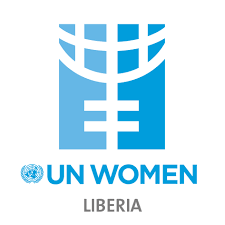MONROVIA, LIBERIA – UN Women, in close collaboration with the Ministry of Gender, has concluded a three-day stakeholders policy dialogue on women’s economic empowerment in Liberia.
The event brought together about fifty participants from across Liberia’s public and private sectors, to discuss the utmost importance of women’s economic empowerment in Ganta, Nimba County.
Under the national theme: “Invest in Women, Accelerating Progress for Liberia’s Future”, representatives from various agencies, including the Ministries of Commerce, Finance, Gender, Children and Social Protection, the Liberia Business Association, and the Liberia Chamber of Commerce, among others, were in attendance.
The UN Women and Ministry of Gender organized the event to discuss and address barriers that affect women’s economic empowerment, political participation and chart strategies for boosting women’s roles in Liberia’s economy.
As part of the event, the UN Women care strategy was launched as a means to highlight the importance of care worker in Liberia and across the World.
Launching the strategy, UN Women Regional Feminist Economist Specialist, Dr. Muriel Ametoglo disclosed that women spent more time doing unpaid care works, which reduce women’s participation in the labor market.
She termed unpaid work by women as being in the heart of gender inequality through the life course of Women, stressing the need to invest in the care work done mostly by women.
According to Dr. Ametoglo, investing in women, especially care work, would create about 300-Million jobs by 2035, globally.
She blamed social norms as immediate conditions keeping women in unpaid care or domestic works.
Dr. Ametoglo said:” Unpaid care or domestic work remains invisible, undervalued, and neglected in economic and social policy making, and there is a need to ensure data to qualify care work in national discussions.”
She maintained that the UN Women is working to ensure that women’s empowerment and economic development are advanced, including ensuring women in decent works, transforming the care systems, and women’s participation in the green economy.
On behalf of the UN Women Country Representative, Deputy Country Representative, Yemi Falayajo, maintained that women’s empowerment is the bedrock to the transformation of any economy, including Liberia.
Madam Falayajo maintained that the multi-stakeholder policy dialogue on Women’s economic empowerment is the gateway to discuss the issues affecting women, and find solutions on how women can be empowered.
Making special remarks at the start of the 3-day event in Ganta, Nimba County, the Deputy UN Women Country Representative said more than 250-Million women globally might be driven into poverty if the global crisis continues.
She said:” This is already adding to other issues that are creating hardship for women, including unpaid care and domestic works, and there is a need for collaboration to address those issues and close the gender gap between men and women.”
Madam Falayajo then lauded the Government of Liberia for making intentional strides to protect, elevate and empower women by establishing Gender Social Inclusive Units across Ministries, Agencies and Commissions.
She called for more to be done, especially the time women spend doing unpaid care or domestic work, stressing that women spend four hours on unpaid while men spent one hour doing the same job.
According to Madam Falayajo, about eighty-eight-percent of women are in vulnerable jobs or doing low pay works.
The UN Women Deputy Country Representative noted that women also have limited productive resources, including lands, financial resources leading to forty-four-percent of women into poverty.
She maintained the call to harness the potentials of women, noting that the GPD of Liberia will rise and economy boom if the gender gaps are closed and investing in women is made a priority.
Madam Falayajo re-committed the UN Women to continue working in the interest of women to advance their empowerment and protection at all levels.
She said:” Liberian women face enormous challenges in the economy of the Country, including limited access to credit, high rates of vulnerable employment, and disparities in unpaid domestic work.”
Also, the Assistant Gender Minister, Ophelia Kennedy, wants a discussion ignited that will fuel progress and empower every stakeholder as champions of transformation.
The Assistant Gender Minister urged participants to approach the dialogue with open minds that prioritize sustainability, equality, and justice, for women.
Minister Kennedy also called for collaboration in an effort to change and break the social norms that hamper the growth and development of women in Liberia.
She sends out olive branches to participants in a bid to build bridges that ensure women are protected and empowered.
Speaking at the Multi-stakeholder Policy Dialogue on Women’s economic empowerment, the Assistant Gender Minister re-iterated the Liberian Government’s unwavering commitment to protecting women across the Country.

